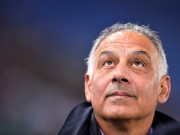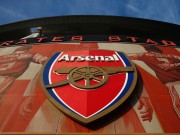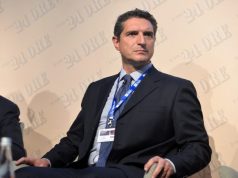Which clubs have changed coaches most often in the last 15 years? Have these decisions paid off? Or were they simply a reaction to the team being in a bad situation?
It’s natural to ask these questions as they run contrary to CF’s recent analysis on how important it is for a club to have a clear project (and for its length to be determined) when they take the decision to appoint a manager with the task of leading the team to victory.

After analysing the number of coaches who have come and gone on the benches of Europe’s top clubs from 2001/02 to 2015/16 (excluding managers who were in charge for less than a week), it’s interesting to note that just one club, Arsenal, have had the same man in charge (Arsene Wenger) for the last 15 years.
Manchester United would have been in the same position, but Sir Alex Ferguson’s departure meant the Red Devils finish in second place in terms of their number of coaches.
Two other English clubs, Manchester City and Liverpool, share third place on six coaches each together with Borussia Dortmund.
Liverpool had just two managers over the course of a decade (Houllier then Benitez were in charge between 2001 and 2010) but recent years have seen a rapid increase in managerial turnover (which is partly down to results not meeting expectations).
Things were different at Manchester City as every manager – including Sven Goran Eriksson – had the chance to coach the team for at least a season, suggesting that each one of them was given a fair opportunity.
At Dormund, the Klopp era (seven seasons between 2008 and 2015) provided unusual stability after a difficult period characterised by indifferent results and frequent changes on the bench (Sammer, Van Marwijk, Rober and Doll were all in charge between 2001 and 2007).
The common denominator among the above teams is the fact that, on average, a coach was always given the chance to keep his job for more than two seasons, indicating that the management was fully committed to the coach’s project and that they patiently allowed the coaches to impose their chosen strategies even if they took a number of years to achieve.
Another fact is that these clubs are all English, with the exception of German side Borussia Dortmund.
Looking at the other teams, except for Bayern Munich (who had two tough seasons in the mid-2000s – 2006/07 and 2007/08 – when four coaches has spells in charge: Magath, Klinsmann, Hitzfeld, Heynckes) and Chelsea (where, after Mourinho’s first spell, no manager was able to keep his job for more than two consecutive seasons), it is the Latin countries who have a statistically greater inclination to change coaches: from 1.88 seasons per coach at Milan to an average of just 1.04 years before Real Madrid lose patience.
When a coach takes his seat on los Blancos’ bench, he is given an implicit instruction: he has to win.
If he doesn’t achieve the desired results within 365 days, there is a very high statistical probability that president Florentino Perez will call the coach into his office and give him the sack.
Only one coach has been able to last three years in the hot-seat at the Santiago Bernabeu: Jose Mourinho, who is no ordinary coach.
Every club and every club’s management therefore has their own strategy: there are some who try to keep a coach for a long time and hope that they reap the benefits from continuity, while there are others who believe that changing coaches is necessary in order to improve results that aren’t in line with expectations.
Clearly there is a different line of reasoning for both options, and they are partly business decisions as well: just as Arsenal don’t have believe in having to win at any cost, instead believing in the added value provided from Arsene Wenger’s ability to use promising youngsters and more experienced players in a dynamic, fast-paced style that now typifies the Gunners, Real Madrid’s directors use every transfer window to provide their coach with a squad made up of world class players in every position, and as a result if a coach doesn’t win trophies then he knows his chances of staying with los Blancos are slim.
With this acknowledgement that there is a difference in clubs’ strategic visions, let us turn to analysing who has been the best at achieving results in the last 15 years.

As can be seen in the table above, Barcelona are the team who have collected the most trophies in the last 15 years with 29 titles (1.93 per season), including four Champions League victories and eight La Liga titles.
Coaches remain on the bench for 1.88 years on average, but there is some variation considering the two long periods under Rijkaard and Guardiola (and now Luis Enrique) and the transitional phases of the early 2000s with Van Gaal, Antic and Rexach and, more recently, with Vilanova and Tata Martino.
Coaches lasted the same amount of time on average at Bayern Munich (1.88 years) but won fewer trophies (26, which is 1.73 a year). Bayern tend to give their coaches at least two years (though this record is tarnished, as previously mentioned, by the four coaches appointed in two years as they brought in a number of people to try to resolve their problems on the pitch), and although in their record in the Champions League isn’t the best (just one win, along with three final appearances) it is excellent in terms of league titles won (nine).
Third are Manchester United, who were able to win 1.40 trophies a season with coaches lasting an average of 3.75 years: if we had only looked at seasons until 2013 or if Sir Alex was still in charge then this figure would be quite different.
The case of Real Madrid (fourth) is unusual, as they have an average of 1.13 titles a season (three Champions League, four league titles) but each coach remained in charge for an average of 1.04 years: in short, they win trophies as often as they appoint new coaches.
Coaches at Inter and Chelsea remained in place for the same amount of time on average (1.36 years) and won the same number of trophies (15, one per year); Juventus have one title fewer (14) but a little more patience (1.67 years per coach), although it should be said that three of these years were a write-off for the Bianconeri following the fallout from Calciopoli (their two league titles were revoked and they were consigned to a year in Serie B).
As mentioned earlier, Arsenal’s case is unique as they kept the same manager (Wenger) and won 0.73 titles a year on average (though they haven’t won the Premier League since 2004).
Another case worth mentioning is that of Milan: the Rossoneri have managed an average of just 0.67 titles per season, while they have gone through an average of 1.88 coaches a year over the last 15 years.
However this statistic is heavily impacted by the last few tumultuous seasons – since 2013 they have gone through five coaches but haven’t lifted a single trophy.
Had we just considered the decade from 2001-2010, Milan would certainly have been one of the top-performing sides from every perspective.
Finally come three teams with the same average permanency (2.50 years per coach): Manchester City, Borussia Dortmund and Liverpool.
While the explanation for City’s and Dortmund’s below-par performances on the pitch (0.40 trophies per season) can be put down to where the clubs were in the league when this analysis starts in 2001 and the fierce domestic competition they face (Bayern are unstoppable in Germany), it is a different matter for the Reds. In 2000/01, the year before this analysis began, Houllier’s team won three titles (including the UEFA Cup) and were looking like they would be one of the competitors for the Champions League (which they eventually won in 2005).
However, without a Premier League trophy and with just one Europa League final (in addition to the one they lost last season) to their name, Liverpool have little to show for their efforts: a situation that certainly isn’t acceptable for one of English football’s biggest clubs.






































